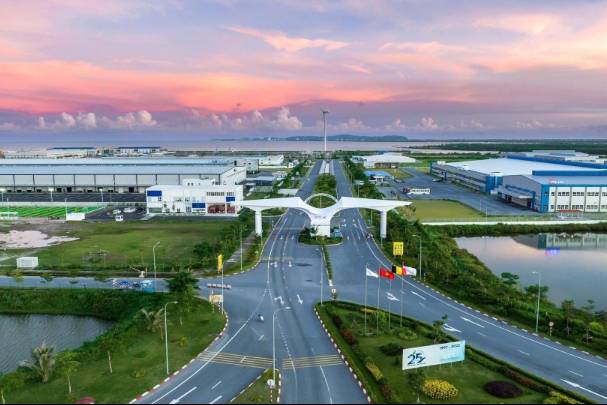Forming a carbon market helps Viet Nam achieve its emission reduction targets and enhances the position of Viet Nam ese enterprises in the international market as more countries adopt border carbon tax policies.
The carbon market is crucial for Viet Nam to pursue its dual goals: sustainable economic development and deeper international integration. Close coordination between central authorities, local governments, and businesses will be essential to ensure the success of this market, laying a strong foundation for a green and sustainable economy.
Roadmap and Policies for the Carbon Market
Viet Nam 's carbon market is gradually taking shape, and the central government has set a clear roadmap. According to Decision No. 232/QD-TTg of the Prime Minister, the carbon trading floor will be piloted starting in June 2025 and is expected to operate from 2029 officially. This initiative is part of the national strategy to fulfill Viet Nam 's commitments under the Paris Agreement and achieve net-zero emissions by 2050.
The Department of Climate Change (under the Ministry of Natural Resources and Environment) is finalizing the national carbon quota and credit registration system while working with the Ministry of Finance to develop a legal framework for carbon trading. Viet Nam is also receiving technical support from international organizations, including the Southeast Asia Energy Transition Partnership (ETP) and the United Nations Office for Project Services (UNOPS), to enhance its capacity to operate the Emission Trading System (ETS).
These efforts aim to gradually control emissions and establish economic mechanisms that encourage businesses to adopt innovative technologies, reduce energy consumption, and move toward sustainable development. However, successful carbon market implementation requires active participation from central authorities and local governments and enterprises.
 Eco-industrial park model at Deep C Industrial Park, Hai Phong. Photo: Hai Phong Economic Zone Management Board.
Eco-industrial park model at Deep C Industrial Park, Hai Phong. Photo: Hai Phong Economic Zone Management Board.Hai Phong Pioneers in Piloting a Carbon Credit Trading Floor
Hai Phong has emerged as a leader in piloting a carbon credit trading floor among localities. The city plans to develop a policy and technical mechanism framework by 2025 and launch a pilot program in 2026.
At a workshop on green transformation in industrial parks (IPs) held on March 6, Hai Phong's leaders emphasized their commitment to sustainable development, affirming that the city would not sacrifice the environment for economic growth. To achieve this, Hai Phong has introduced several initiatives, including the development of eco-industrial parks, the adoption of circular economy models, carbon tracing, and incentive mechanisms to encourage businesses to participate in the carbon market.
The pilot carbon credit trading floor aims to help Hai Phong reduce emissions and allows regional businesses to engage with the carbon market actively. This initiative serves as an essential testing ground, offering valuable lessons and experiences to inform the nationwide rollout of the carbon market.
Opportunities and Challenges for Businesses
While the carbon market presents numerous opportunities, it also brings significant business challenges. High-emission enterprises will need to purchase carbon credits to offset their emissions, while companies investing in clean technologies and emission reductions can sell carbon credits, creating new revenue streams.
Several industrial parks, such as DEEP C and Nam Cau Kien in Hai Phong, have led green transformation by adopting eco-industrial park models and implementing emission reduction strategies. However, not all businesses have the resources to adapt to the ETS system quickly.
Key challenges include Limited investment capital for green technologies, Shortages of human resources with expertise in carbon markets, Dependence on traditional, carbon-intensive production models, and Inconsistent technical infrastructure and support policies.
ETS training programs are being actively promoted to address these obstacles. Over 657 managers, experts, and business leaders have participated in carbon market courses, helping them better understand carbon pricing mechanisms and develop effective emission reduction strategies.
The road ahead for Viet Nam 's carbon market requires continuous collaboration among stakeholders, investment in capacity building, and clear policy guidance. With local initiatives like Hai Phong's pilot program and growing international support, Viet Nam is steadily advancing toward a low-carbon economy and fulfilling its climate commitments.